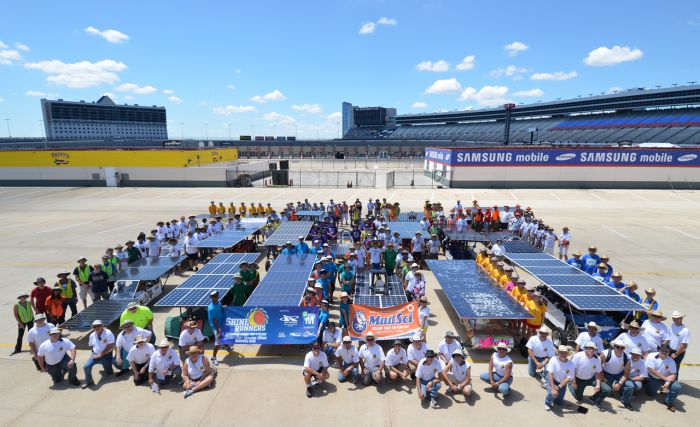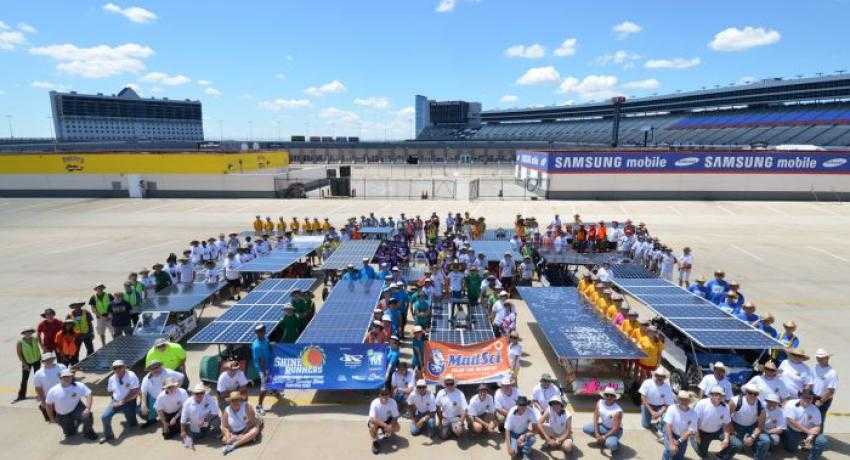Solar car challenge starts Tuesday
 Hundreds of high school students from around the country will embark on a solar-powered road trip Tuesday.
Hundreds of high school students from around the country will embark on a solar-powered road trip Tuesday.
Teams of high school kids have spent the last one to two years building solar-powered cars to participate in the 20th annual Winston Science Academy’s Solar Challenge.
They will drive their cars from Fort Worth, Texas to Los Angeles.
The cross-country journey is not a race.
“We really de-emphasize competition and emphasize comradery,” said Lehman Marks, the event coordinator.
If one of the teams is pulled off on the shoulder to work on its car, a passing team is expected to stop and offer assistance. The group comes together at the end of every day to eat together and start again the next day. They travel about 200 miles a day on average.
The cars, all topped with solar panels, end up being spread out along the road as some can travel faster than others and have more or fewer problems.
The teams of high school students work to build functional road-worthy cars powered entirely with solar energy that they can effectively drive long distances on highways. They stick to two-lane roads with wide shoulders and trailer their cars through areas that won’t be easy to navigate for all.
“These are high school kids,” Marks said. “Most of the cars aren’t fast enough. I wouldn’t put them on the Interstate.”
The total distance between Fort Worth and Los Angeles is 1,200 miles. But students will only drive 880 of those miles in their solar cars, Marks said. The Solar Car Challenge started in 1993 as a way to engage students in the sciences.
“It’s really gotten popular as people have finally come around to believing in project-based learning,” Marks said.
The academy recently got the results of an informal study that shows students who participate in their solar car program are 23 percent more likely to go into a science or engineering career than students who take Advanced Placement or honors-level science and math classes.
With 110 high schools participating in the solar challenge, Marks said the program is just a shadow of what it could be. He has a waiting list of 4,400 schools that want to participate. But the academy only has enough funding to support the 110 schools for now.
The academy provides a training course for students and teachers to kick off the project. From there students have to raise the money, design the car, engineer, build it and drive it. The academy a mentor and ongoing support throughout.
“A lot of the teachers, they get to January and they have questions they didn’t even know existed when they started the process,” Marks said.
Every other year, the event takes place on a motor raceway in Fort Worth with seating for 200,000. But only a fraction of that capacity comes to the event. When the solar-powered cars travel cross country every other year, they attract a lot of attention.
“We will pass probably 10 million people on this route and it really inspires people,” Marks said.




